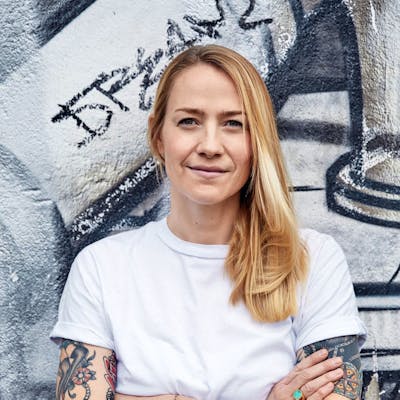
If you consistently stay up late and go to bed after one in the morning, this can have consequences for your mental health.
Good pictures
Published
HealthAnyone who goes to sleep after this time will experience psychological problems
Some go to bed early, while others prefer to wake up late. But according to a recent study, there is an important threshold that even late sleepers should not cross.

- Van
There’s always been a debate about this: Does going to bed earlier or later make a difference in the quality of your sleep? A new one study, which was published in the journal “Psychiatric Research,” says it now has an answer. And it says: Yes, it makes a difference.
Stanford University researchers analyzed data from more than 70,000 people and came to the following conclusion: People who regularly go to bed after one o’clock in the morning are more likely to suffer from mental disorders such as depression and anxiety than those who go to bed before one o’clock. morning hour
The timing – i.e. the type of sleep – was also taken into account: larks are considered morning people and like to wake up early, while owls like to wake up late and sleep. But owls shouldn’t go to bed too late: “We found that adjusting to the schedule is not the key, and that waking up late is actually not good for mental health,” explained Jamie Zeitzer, professor of psychiatry and behavioral sciences. Stanford University.
Owls are also affected
The study found that people who call themselves owls and go to bed very late are 20 to 40 percent more likely to suffer from mental disorders than other owls who sleep earlier. Those who went to bed before 1 a.m. had significantly fewer psychiatric diagnoses.

Studies have shown that people who go to sleep for more than an hour are more likely to have mental health problems.
Bexels/Lisa Summer
There are also critical voices about the study: Indira Gurubhagavatula, a professor of sleep medicine at the University of Pennsylvania, told HuffPost that study participants were mostly white and middle-aged or older. It can create a one-sided picture.
In addition, it is not certain whether all the information is meaningful: “It is based on a question which timeline you belong to. But usually we assess morning or evening types with a more detailed questionnaire, which has more detailed questions,” says Gurubhagavatula. That means the study isn’t entirely clear whether people are truly morning owls or night owls. Still, the sleep expert says the results are consistent with her expectations.
Light plays a role
Why the time we sleep affects light: “If you don’t go to bed after one or two in the morning, you won’t wake up until several hours after sunrise. “We don’t go to bed until several hours after sunset,” Matthew Lehrer, an assistant professor in the Department of Psychology at the University of Pittsburgh, explains to HuffPost.

Daylight sends signals to our body and can therefore affect our well-being.
Pexels/Andrea Piacquadio
It is important that our body receives signals that it is daytime – for example it is light and the sun is shining. “If you don’t get these signals or you don’t get mixed signals, it can lead to biological problems that affect the brain,” Lehrer says. And it can negatively affect mental health.
How important is your sleep to you? Do you make it a priority or do you sleep when you have time? Tell us about it in the comments.
Do you or someone you know have a mental illness?
Pro healthy mind, Tel. 0848 800 858
Children’s souls SwitzerlandCounseling for stressed parents and their relatives
Association with postpartum depression, Tel. 044 720 25 55
Relatives.chAdvice and contact points
WashingRegional associations for relatives
For the youthCounseling for Children and Youth, 147
Hand givenConcern Hotline, 143
Anxiety and panic help Switzerland, Tel. 0848 801 109
Are you stalking on WhatsApp for 20 minutes?
Morning and end of day news overview, surprising stories and breaking news: Subscribe to the 20-minute WhatsApp channel and get regular updates with our best news straight to your cell phone.

“Wannabe pop culture fanatic. Zombie advocate. Entrepreneur. Internet evangelist. Alcohol fanatic. Typical travel buff.”




More Stories
Choosing the Right Quality Management Software for Your Industry
If guests bring items: Can shower gel be packed from the hotel?
This diet can prevent death from dementia